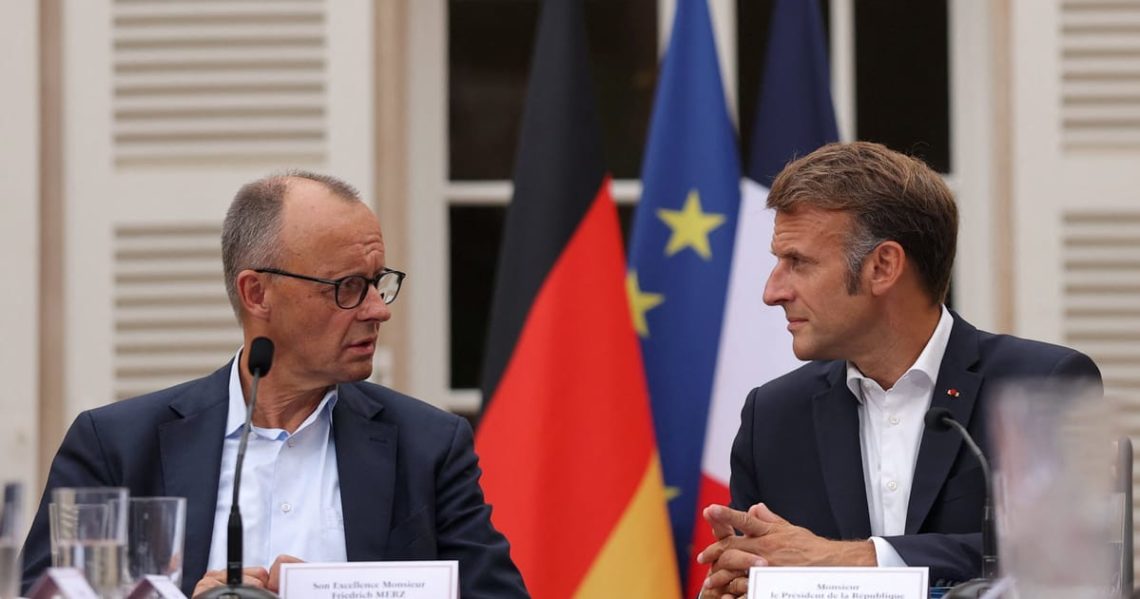The leaders of France and Germany issued a joint call Friday for cuts to EU water pollution and chemical safety rules, in a bid to help European industry.
In a joint statement adopted at the 25th Franco-German Council of Ministers in Toulon, France, French President Emmanuel Macron and German Chancellor Friedrich Merz backed calls for a revision of REACH — the EU’s chemical legal framework — that’s focused on “reducing burdens” by “streamlining procedures.”
It comes months before the European Commission is due to present its long-delayed revision of REACH. The EU executive has signaled that the revision’s primary aim would be to simplify rules and speed up procedures for industry — to the dismay of civil society groups.
The two governments also pushed for an easing of financial constraints for Europe’s struggling chemicals industry.
Merz and Macron pushed for an easing of recently-revised urban wastewater rules, which require cosmetics and pharmaceuticals companies to bear the bulk of the costs of cleaning up micropollutants in urban wastewater from the end of 2028.
The Commission has already committed to producing an updated study on impacts of the extended producer responsibility scheme, following strong industry pushback.
The statement from the EU’s two biggest economies sends a strong message to Brussels to push ahead with its drive to cut red tape.
“To unleash our companies’ full potential of growth and productivity it is … urgent to substantially ease the complexity and simplify the European Union’s regulatory environment,” the document states.
Materials recycling focus
The two leaders repeated calls for better rules to facilitate the recycling and reuse of critical raw materials (CRM), as EU countries scramble to reduce dependency on Chinese minerals essential in defense and the energy transition.
Paris and Berlin committed to “work together on the design of the CRM aspects of the Circular Economy Act and coordinate their efforts” in the hope of “reaping the benefits” of the policy proposal, the draft reads.
The Circular Economy Act is expected in 2026 and aims to facilitate the transfer of materials waste between EU countries to boost recycling and reuse across European industries.
Back in 2023, the two EU countries had already pledged further cooperation on critical raw materials alongside Italy, including by setting up working groups for new extraction, processing and recycling projects.
Giorgio Leali contributed reporting.
The post Macron and Merz urge easing of EU pollution laws to revive ailing industry appeared first on Politico.




